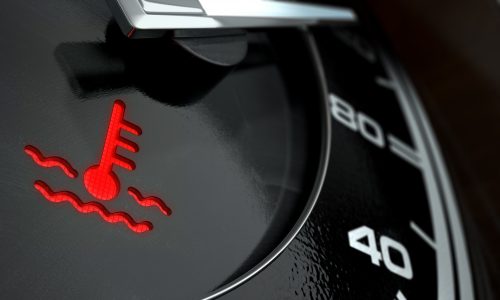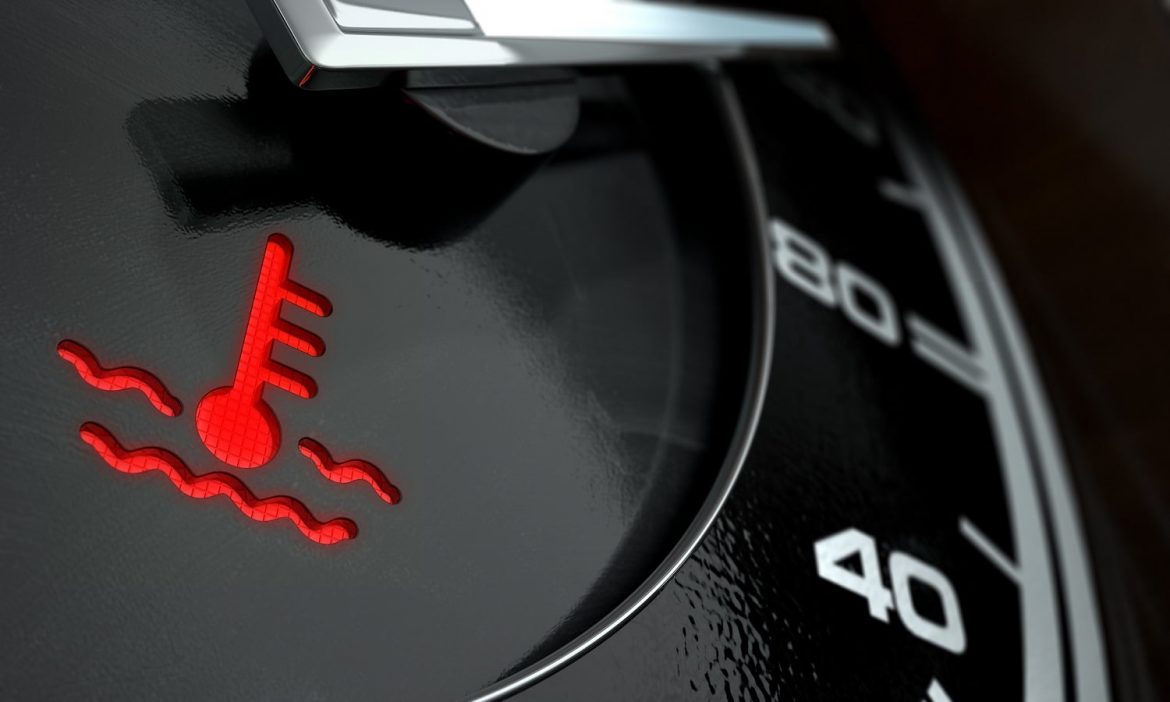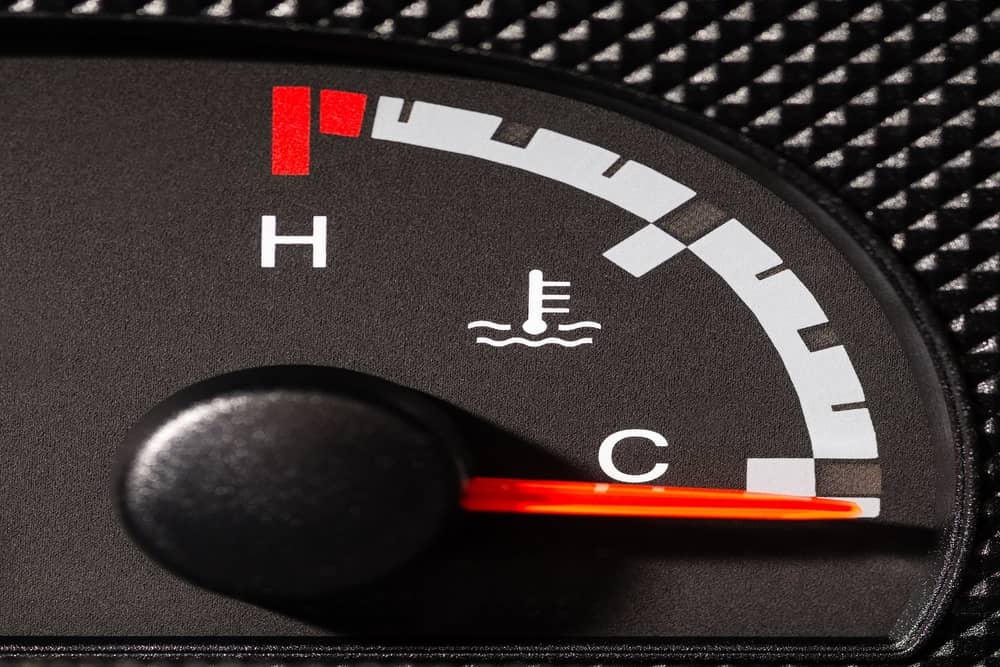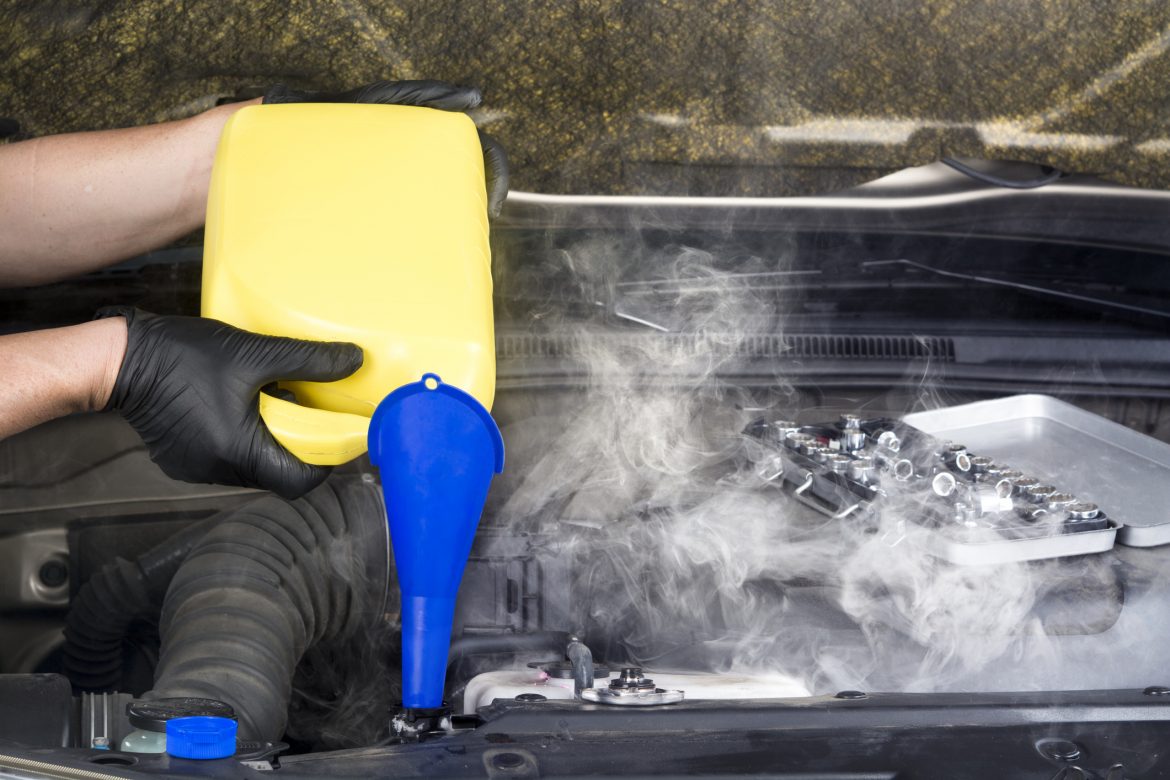 There are a few different causes of engine overheating, but only one result: engine damage. Your engine is designed to operate in a very specific environment. The temperature of your engine is limited at the lower end by ambient temperature and at the upper limit by your engine’s cooling system, specifically the thermostat. Many other operating conditions are limited to help keep things safe as well. Things like a minimum idle speed as well a maximum engine RPM are set by your engine’s computer and minimum and maximum oil pressures are regulated mechanically by your oil pump. If any of these regulating systems fails, your engine can quickly be outside of its designed operating conditions which will quickly lead to engine damage.
There are a few different causes of engine overheating, but only one result: engine damage. Your engine is designed to operate in a very specific environment. The temperature of your engine is limited at the lower end by ambient temperature and at the upper limit by your engine’s cooling system, specifically the thermostat. Many other operating conditions are limited to help keep things safe as well. Things like a minimum idle speed as well a maximum engine RPM are set by your engine’s computer and minimum and maximum oil pressures are regulated mechanically by your oil pump. If any of these regulating systems fails, your engine can quickly be outside of its designed operating conditions which will quickly lead to engine damage.
Although cooling system malfunctions are common, there are other causes of engine overheating that can still cause engine damage. Things like broken air ducting or improper ignition timing can both lead to your engine overheating as well. In today’s modern cars there are lots of deflectors, shielding and ducting in the front of your vehicle to force air where it should go. If these plastic panels or ducts are missing they could be allowing air to bypass cooling system components allowing your vehicle to overheat. Similarly, a poorly running engine will create much more waste heat and cause overheating as well. Incorrect ignition timing is most extreme cases of a poorly running engine that can create extra heat but even things like worn spark plugs, a clogged fuel system or a dirty airflow sensor can cause your engine to create extra heat and run hot.
When it comes to causes of engine overheating related to your cooling system there are still multiple reasons your engine could overheat:
- Stuck thermostat
- Failed or damaged water pump
- Clogged radiator
- Fouled heat transfer surfaces
- Low coolant level
Let’s have a closer look at each of these:
Engine Overheating Cause: Stuck Thermostat
Your thermostat is a mechanical valve that regulates coolant flow through your radiator. When the engine is cold it doesn’t allow any coolant to flow through your radiator. As things heat up, the valve opens allowing more and more coolant to flow through the radiator to keep the temperature in your engine at a constant.
Engine Overheating Causes: Damaged Water Pump & Clogged Radiator
The water pump is what pushed the coolant through your engine and radiator. If your water pump is failed, or the impeller is damaged it will cause insufficient coolant flow allowing the coolant in your engine to get too hot. Similarly, a clog in your radiator, or even elsewhere in your system will limit coolant flow in your system causing the same hotspots and possible damage.
Engine Overheating Cause: Fouled Heat Transfer Surfaces
Another one of the causes of engine overheating related to cooling system failure is fouled heat transfer surfaces. Your engine block and radiator must be able to transfer heat into and out of the coolant efficiently. If scale has built up inside the cooling passages it can limit the amount of heat that can be transferred again allowing your engine to get too hot. This most often happens on older cars that haven’t had the coolant flushed regularly. If you suspect this might be your problem, check out our article about removing cooling system fouling by flushing your radiator.
Engine Overheating Cause: Low Coolant Level
A low coolant level can also lead to engine overheating if there isn’t enough to coolant to keep your radiator full and maximize heat transfer. You can check your coolant level in your radiator overflow bottle or your cooling system expansion tank.
Even if your vehicle doesn’t have any of these problems, it is possible that it will overheat. If you use your vehicle in extreme conditions, such as extremely high temperatures or for hauling or pulling a trailer, the factory cooling system might just not be able to keep up. Before you spend lots of money installing aftermarket cooling products, consider adding BlueDevil Engine Cool to your engine coolant. BlueDevil Engine Cool increases the cooling capacity of your coolant allowing your engine temperature to stay in the normal operating range even during extreme driving. Adding Engine Cool to your vehicle is an extremely simple and effective way to keep your engine from overheating.
Now that you know what causes an engine to overheat, you may find it helpful to learn more about BlueDevil Engine Cool. Find out more by visiting our product information page here: Engine Cool
You can find BlueDevil Engine Cool at any of our partnering local auto parts stores like:
- AutoZone
- Advance Auto Parts
- Bennett Auto Supply
- CarQuest Auto Parts
- NAPA Auto Parts
- O’Reilly Auto Parts
- Pep Boys
- Fast Track
- Bumper to Bumper Auto Parts Specialists
- S&E Quick Lube Distributor
- DYK Automotive
- Fisher Auto Parts stores
- Auto Plus Auto Parts stores
- Hovis Auto & Truck Supply stores
- Salvo Auto Parts
- Advantage Auto Stores
- Genuine Auto Parts stores
- Bond Auto Parts stores
- Tidewater Fleet Supply
- Bumper to Bumper Auto Parts
- Any Part Auto Parts
- Consumer Auto Parts
Pictures Provided By:
causes_of_engine_overheating.jpg – By Allanswart – Licensed by Getty Images – Original Link
BlueDevil Products can be found on Amazon.com or at AutoZone, Advance Auto Parts, O’Reilly Auto Parts, NAPA, and other major auto parts retailers.
18 responses to "What Causes and Engine to Overheat?"
18 Comments
Leave a Reply
Related Articles
Search Blog
Subscribe
Blog Categories




I noticed that the needle on my temperature guage was right at the top, on the Red part and at the same time, the steering was very hard and I had to use a lot of force to turn the steering wheel. Are the two problems related, or is it two different problems ?
Alex-
Based on your description, it is possible the serpentine belt has broke and thus, the water pump and power steering pump are not functioning properly. A broken serpentine belt will have to be replaced, but a belt that has slipped off can often be rethreaded around the pulley system, which should cause power steering and engine cooling to return.
Thank you!
-BDP
Yep,
BDP is exactly correct. When I read you steering was hard AND your engine was heating up, I thought -> serpentine belt broken…
Dear friend
As per your descriptions problems are
1. Engine overheating
2. Steering hard
The cause is
1. Your ac belt tonned, alternator, steering motor stopped
2. Battery stopped charging
3. Fan stopped due to lack of battery power
4. Cooling system failed
5. As new steering system is fully electric the steering also gone hard
Solution
1. replace your ac belt
2. Recharge your battery
3. Check the radiator water level and top up
4. Check water pump
5. Check for head gasket is intact or not
Help!
Erika-
Please contact our technical support line at 888-863-0426 with any questions.
Thank you!
-BDP
About 2 weeks ago my 05 Chrysler started over heating, but intermittently (mostly just city driving, not at all on highway). And with it not losing coolant I believed it to be the thermostat. So I replaced thermostat and outer housing. Drove good for about 2 days then same issue now more frequently (including highway). Now losing coolant. So as I’m adding coolant i realize a steady stream coming from passenger side where the water pump or heater core is located. That stream and loss of coolant only lasted a day. Now I have a full reservoir of coolant, no leaks and still overheating. But the strange thing is when overheating I (note: never do this, extremely hot) release the pressure/steam from radiator and the gauge goes to normal (Center) and I can drive far with no overheating at all. What would the cause of the overheating be? The water pump?
Mike M-
Thank you for asking about your Chrysler. Based on your description, the water pump starting to go is likely the cause behind your over heating issue. A faulty water pump would affect circulation, not allowing proper flow, and even over pressurizing in some areas, which could cause a leak to occur. Replacing the water pump in this case should alleviate the problem.
Thank you!
-BDP
I just replaced the thermostat on my 85 k20 350 motor it stays about 170 in town and going up to 55 but when I start going up a hill at about 60 it starts getting hot right about 230 and when I get off the hill it stays at 210. Heater still works, not losing coolant. Engine timing is dead on and the air/fuel ratio is practically perfect. What can I do
Brandon-
Thank you for asking about your Chevy K20. Based on your description, we recommend using the BlueDevil Engine Cool (https://gobdp.com/product/engine-cool/). The product will help reduce engine operating temperatures up to 25° F by reducing surface tension of coolant for improved heat transfer. It eliminates hot spots in cylinder heads which will reduce the possibility of engine failure. BlueDevil Engine Cool will prevent overheating and extend the life of water pump seals.
Thank you!
-BDP
Anytime I’m stuck in traffic for about twenty minutes with my air conditional on, the temperature of my car rises, what could be the cause
Michael-
Is the needle on the temperature gauge going into the “Hot” zone or is the needle just going up a little bit? Actually, it isn’t really abnormal for the temp to rise when you have the A/C on, as the condenser sits right in front of the radiator and will release heat in this area. As long as the vehicle isn’t overheating, you should be fine.
Thank you!
-BDP
2004 Honda civic ex 1.7l My car keeps running hot I’ve put it in the shop replaced heads, head gasket, valve seal, water pump, timing belt, thermostat, bypassed heater core. My car is still running hot and no one knows why. The fans are working, they’ve been checked. We replaced the thermostat again thinking maybe a faulty thermostat but no. The radiator is holding water fine even when it runs all the way hot i let it cool down and check the water and it is completely full. What am I missing? I’m at my whits end. I do not have the money to go buy another car.
Amy-
Thank you for asking about your Honda Civic. Based on your description, it seems as though a faulty radiator cap may be the only component that hasn’t been replaced already. If the engine is overheating but not losing coolant, and the fans are kicking on, the issue would most likely be due to a circulation/flow problem. A faulty radiator cap may not be holding pressure in the radiator, and worse, allowing air into the system and creating air pockets. If replacing the radiator cap doesn’t help the issue, you can always try having the cooling system flushed.
Thank you!
-BDP
My engine fans are not coming on at all and my car runs hot, on my 2001 hyundai tiburon, I have 3 hoses and 2 get hot but the thermostat one is cold, can you tell me what’s going on? Thanks
Would a bad water pump stop the fans from coming on? I hot wired the fans and they work, changed thermostat twice, flushed radiator, switched out relays and checked all fuses, yet fans do not spin when hot. Putting the car in shop to put new water pump in but am curious why fans aren’t working. Even when air conditioner is on no fans come on 😢
Chad-
Thank you for asking about your Hyundai Tiburon. Based on your description and the work you’ve already done, it’s possible a faulty thermostat is the culprit for your issues. If the thermostat doesn’t open when the engine reaches normal operating temperature, coolant will stay in the block and thusly, the engine will start to overheat. This would prevent the fans from coming on.
Thank you!
-BDP
My 2016 dodge dart kept running hot. It would go as high as it could go on the gage. Realized there was a coolant leak. Got that fixed. Car still running hot. Tried to turn car back on and started smoking and wouldn’t start. Got the car to start once but not stay on. And now not starting at all. Any ideas ? Fan fuse has been replaced.
Rakeia-
Thank you for asking about your Dodge Dart. Where was the original leak coming from? Was the smoke coming from out of the tail pipe? It’s possible that something was getting into the cylinders and fouling out one or more of the spark plugs. At this point, has the issue been resolved? Please contact our technical support line at 888-863-0426 so that we can get a little better understanding of the vehicle’s condition and be able to make any appropriate recommendations.
Thank you!
-BDP